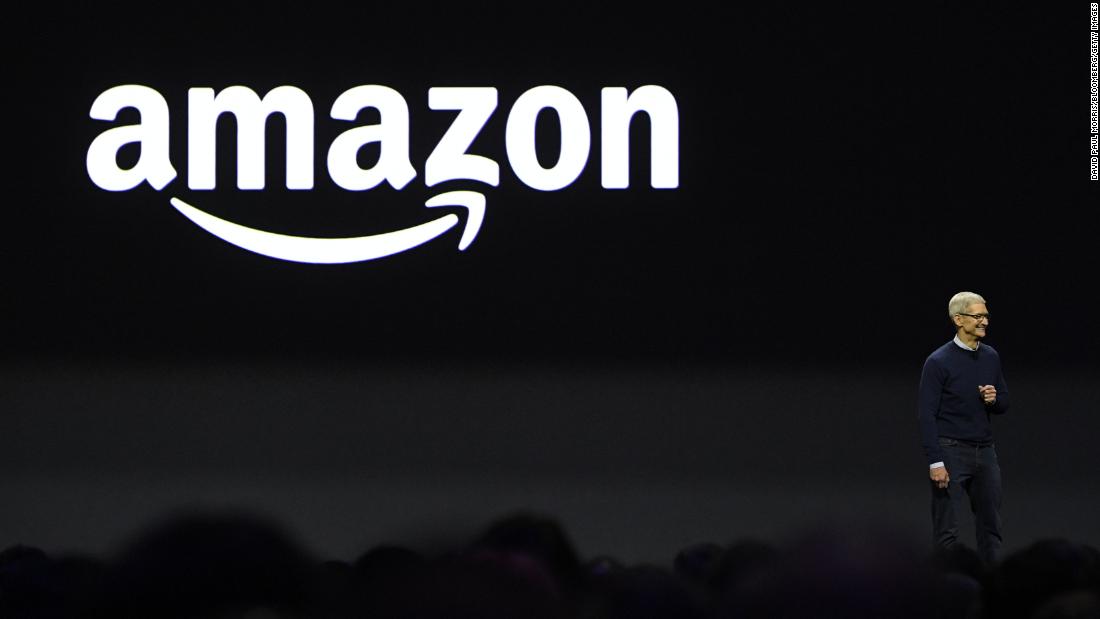
A new deal between Apple and Amazon is about to make it even harder. It could be the final blow for many small online resale and repair shops.
Amazon and Apple have stuck an agreement that lets Amazon list the newest Apple and Beats products when they come out, like the iPhone XS and XR. In exchange, Amazon will remove any non-authorized third-party sellers selling Apple products from the platform. The deal will begin later this year and apply to Amazon sales in the United States, United Kingdom, Japan, India, France, Germany and Spain.
Amazon will sell and ship Apple products, which it will get directly from Apple. It will also list products from some approved Apple resellers.
Sellers found out about the change Friday morning in a letter from Amazon, obtained by CNN Business. They have until January 4, 2019 to sell their existing products before Amazon removes all of their listings. Amazon recommended they contact Apple if they'd like to become an authorized reseller and continue selling products on its site.
"It's just [an] assault on 3rd party resellers," said the owner of AceBeach, who asked not to be indentified. "They just want it so people like me will have to go through Apple directly."
Approved Apple resellers have to buy a minimum amount of Apple product a year, which doesn't make sense for some smaller sellers. Many do most of their sales immediately after an Apple product release in March and September, when inventory can be scarce. The third-parties often stock up on the new devices the day they're released at Apple Stores and Best Buy, and rush to fill the void on Amazon. They call it "Apple Season."
Other small businesses deal in used and refurbished devices, buying them from their original owners and fixing them up. These companies will also have to be approved by Apple, which likely means they will have to become authorized Apple service providers as well. As part of that program, people who fix phones have to have a commercial space where customers can walk-in, and they can only use official Apple parts.
Unauthorized companies are still able to sell Apple goods on sites like Ebay and Craigslist, or through their own sites, but that business is a fraction of what they can do on Amazon. In addition to the higher volume, Amazon offers sellers more protection from fraud.
Amazon dominates online retail in the United States, dwarfing even its closest competitors. It accounts for 49.1% of all US online retail sales, according to eMarketer, and is expected to bring in $258.22 billion in sales this year.
It is trailed by eBay, which is in second place with 6.6% of sales. Apple is the third largest e-commerce site in the US with 3.9% of sales. That may sound tiny compared to Amazon, but it's impressive when you consider Apple is selling a very limited selection of products.
"Amazon is constantly working to enhance the customer experience, and one of the ways we do this is by increasing selection of the products we know customers want," Amazon said in a statement about the change.
This isn't the first time Amazon has worked with retailers to crack down on third-party sellers. When AceBeach was selling some popular toys, Amazon started requiring documentation from manufacturers like Hasbro giving permission to sell their products, said AceBeach's owner.
A 2013 Supreme Court ruling upheld the right of people to resell any items they have purchased legally, even if they are copyrighted. But as a business, Amazon has full control over who can sell what on its platform.
Sometimes it uses that power against its biggest competitors. Amazon has blocked the sale of Google devices like the Chromecast that compete with its own smart speakers and streaming devices. And even with this new deal, Amazon still won't sell Apple's HomePod, a competitor to Amazon's Echo devices.
The latest change won't put AceBeach out of business, since it had already started phasing out Apple sales. But for small online companies, it is reminder of how their livelihood depends on Amazon.
No comments:
Post a Comment